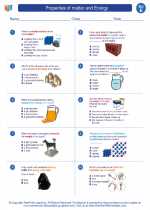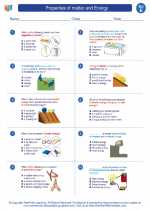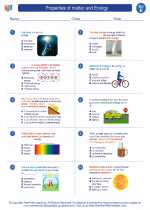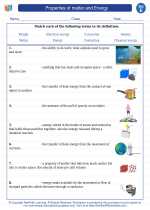Properties of matter and Energy -> ocean
What is an Ocean?
An ocean is a large body of saltwater that covers 71% of the Earth's surface. It is made up of interconnected water bodies, including the Atlantic, Pacific, Indian, Southern (Antarctic), and Arctic Oceans. Oceans play a crucial role in regulating the Earth's climate, providing food and resources, and supporting diverse ecosystems.
Key Facts about Oceans:
- Oceans are home to a wide variety of marine life, including fish, mammals, plants, and microorganisms.
- The ocean floor features diverse topographical features such as trenches, ridges, and seamounts.
- Oceans influence weather patterns, ocean currents, and the water cycle.
- Human activities, such as pollution and overfishing, can have a significant impact on the health of the oceans.
Study Guide:
1. Ocean Zones:
Learn about the different zones of the ocean, including the sunlight zone, twilight zone, and midnight zone. Understand the unique characteristics and inhabitants of each zone.
2. Ocean Currents:
Explore the major ocean currents and their impact on climate and marine life. Understand how ocean currents are formed and how they distribute heat around the globe.
3. Marine Ecosystems:
Study the diverse ecosystems found in the ocean, including coral reefs, kelp forests, and deep-sea hydrothermal vents. Learn about the interactions between species and the importance of biodiversity.
4. Human Impact:
Examine the ways in which human activities, such as pollution, overfishing, and climate change, affect the health of the oceans. Consider potential solutions and sustainable practices to protect marine environments.
5. Ocean Exploration:
Explore the history of ocean exploration, including famous explorers and significant discoveries. Learn about modern technologies used to study and map the ocean floor.
.◂Science Worksheets and Study Guides Fifth Grade. Properties of matter and Energy

 Worksheet/Answer key
Worksheet/Answer key
 Worksheet/Answer key
Worksheet/Answer key
 Worksheet/Answer key
Worksheet/Answer key
 Vocabulary/Answer key
Vocabulary/Answer key
 Vocabulary/Answer key
Vocabulary/Answer key
